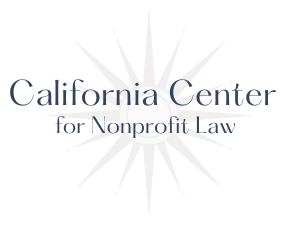
TG 2: Single-Parent Title-Holding Corporations – IRC Section 501(c)(2)
The Internal Revenue Service (IRS) has issued a revised version of Technical Guide (TG) 2, which addresses the federal tax exemption qualifications for Internal Revenue Code (IRC) Section 501(c)(2) title-holding corporations. The sole purpose of a tax-exempt title-holding corporation is to hold title to property, collecting income from it, and turn over the income, less expenses, to an organization exempt under Section 501(a).
One type of title-holding corporation is the single-parent title-holding corporation organized under Section 501(c)(2). The single-parent title-holding corporation offers a practical solution for tax-exempt organizations to transfer title to property, while also addressing other legal considerations.
Elements of Section 501(c)(2) Title-Holding Corporations
Organizational Requirements
A Section 501(c)(2) corporation must be exclusively organized to hold title to property, collect income, and turn over the income, less expenses, to a Section 501(a) organization. As a result, the corporation’s organizing documents must limit its purposes and powers to holding property and collecting income. If the corporation’s organizing documents go beyond that purpose, then the corporation is not exempt under 501(c)(2).
Permissible Activities and Sources of Income
The 501(c)(2) corporation is limited to holding title to property, collecting income, and turning over its net income to an exempt organization. However, if an organization has related business taxable income (UBTI) under Section 512, other than from a few sources, it will not qualify for the exemption under 501(c)(2). Permissible sources of UBTI include the following:
- Section 512(a)(3)(C) – Special rules on non-member income when the distributee is exempt under Section 501(c)(7), 501(c)(9), or 501(c)(17);
- Section 514 – Income from debt-financed property;
- Section 512(b)(3)(B)(ii) – Rents based on the income or profits derived by any person from the leased property, other than fixed percentage or percentage of receipts;
- Section 512(b)(13) – Interest, annuities, royalties, and rents;
- Section 512(b)(3)(A)(ii) – Rents from personal property leased with real property when the rents from personal property are more than an incidental amount of the total rents; and
- Section 512(b)(3)(B)(i) – Rents from personal property leased with real property when the rents from personal property exceed 50% of the total rents.
Although these sources of UBTI do not affect the exemption under 501(c)(2), they are nonetheless subject to UBTI tax. Other permissible sources of income include:
- Excess income incidentally derived from holding title to real property that exceeds 10% of its gross income for a taxable year, if the organization “can establish that the receipt of the excess disqualifying income was inadvertent, and they are taking reasonable steps to correct the circumstances causing the excess income;”
- Passive income, including rent from real property, rent from personal property leased with real property, passive investments, oil or mineral production payments, and acquisition with borrowed funds; and
- Interorganizational indebtedness (as opposed to acquisitional indebtedness within the meaning of Section 514(c).
Prohibited Holdings and Sources of Income
An organization is ineligible for the 501(c)(2) exemption if it receives any other UPTI than from those sources listed above. Furthermore, an organization will not qualify for the exemption if it has income incidental to holding title that exceeds 10% of its gross income for a taxable year, unless it meets the criteria listed above.
Likewise, leasing only personal property – not with real property – will make an organization ineligible for the 501(c)(2) exemption. Finally, operating a trade or business will render an organization ineligible for the 501(c)(2) exemption. Other than holding title to property and collecting income, a 501(c)(2) organization may not engage in any “trade or business,” or any activity carried on producing income from the sale of goods or the performance of services.
Turning Over Income
A Section 501(c)(2) organization must turn over all the income it collects from holding title to the property, less expenses, to a Section 501(a) exempt organization. The organization cannot retain the income it collects and turn it over to the exempt organization at least annually.
Distributee Organization and Its Relationship to the 501(c)(2) Organization
The Section 501(a) exempt organization is the distributee of the income from the 501(c)(2) organization. 501(a) organizations include those described under Sections 501(c), 501(d) (religious and apostolic organizations), and 401(a) (qualified pension, profit-sharing, and stock bonus plans).
The relationship between the 501(a) and the 501(c)(2) organization is one of parent and subsidiary. The 501(c)(2) organization is an investment or property holding subsidiary of the 501(a) organization.
Frequently Asked Questions (FAQ)
Does an organization exempt under Section 501(c)(2) have to file an annual tax return?
Yes. Generally, a Section 501(c)(2) organization must file an annual Form 990-series return or notice. Failure to file the return or notice for three consecutive years will result in the organization automatically losing its tax-exempt status.
Are contributions to a Section 501(c)(2) organization tax-deductible?
No. Contributions to a Section 501(c)(2) are not tax-deductible under Section 170.
Must a Section 501(c)(2) organization be a corporation or may it be another type of organization?
A Section 501(c)(2) organization must be organized as a corporation. However, the term “corporation” includes an association under Section 7701(a)(3).
Call the California Center for Nonprofit Law Today
Understanding the laws that govern charitable organizations, which are complex and ever-changing, can be a challenging task. Our goal is to inform you of any legal changes that affect your charitable organization and outline the necessary actions to ensure compliance. Contact an experienced nonprofit lawyer today by calling the California Center for Nonprofit Law offices at (949) 892-1221, emailing us at info@NPOlawyers.com, or contacting us online for more information today.
